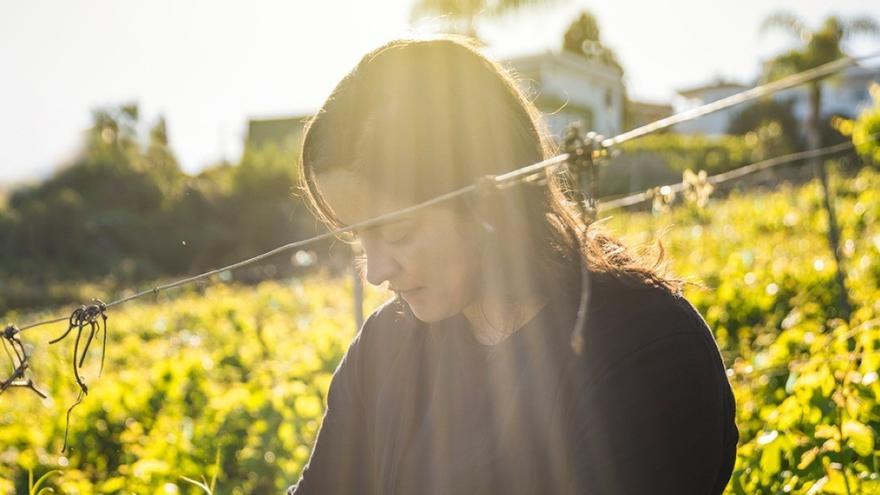
When Fatima Hernandez Guillama was running around his father’s vineyards, back in the eighties, he could not imagine that four decades later he would take charge of them with the creation of LoHer Wineries (2013), framed in the Tenerife region of Tacoronte-Acentejo, a commitment to gradually modernize a family tradition without losing the essence of artisanal things, of handmade products. This journey, which is reaping countless successes, began with one of life’s twists and turns. After going to Madrid to study, at only 18 years old, and once back in Tenerife, in 2013 he lost his job. It was then when he threw himself fully into the world of oenology and viticulture, through a higher education cycle at the Tacoronte Agrarian School.
Before, he took a decisive step, registering the family winery in the designation of origin to start making bottled wine, a commitment that began in his second year of training.. “I started traveling, meeting foreign winegrowers and tasting different wines. I also went with the idea of seeing what was happening outside in the world of wine and what I could extrapolate to our wines,” he recalls. With this movement she became the first woman in her family to dedicate herself to oenology and viticulture, making her way in a markedly masculine world.
Local varieties
In her personal commitment, Fátima Hernández had a clear objective of maintaining the artisanal and family character of the winery, giving prominence to local varieties such as Vijariego Blanca, Vijariego Negra or Baboso Blanco. From fourteen hectares of vineyards, it produces about 40,000 liters of wine per year. Separated each of them by plot and variety, obtain fourteen different varieties. A decade after its start, the project has diversified into three branches. On the one hand there are entry-level wines, such as 100% Listán Negro or traditional LoHer; on the other, the LoHer San Clemente project, with which he has recovered an abandoned vineyard estate, bringing it back to life. Finally, the LoHer Cosechera, which is based on the concept of working your own lands, producing an agricultural product and marketing it.
Very natural wines
“The result is understanding that wine changes. Under Cosechera the best productions of each vintage are bottled so they are different wines every year. We try to make them as natural as possible because, in the end, it is something that the consumer also begins to value and appreciates it,” he explains. The objective is that when the wine lover tries the wine’s products, they reflect the area in which they are located and their variety. “When you work the vineyard, the work in the winery is very easy because you already know the shortcomings and virtues of what has arrived, how your vineyard has functioned all year and how it has evolved in the field, so you really know the wine that you get. is going to give and what you can make”reveals the winemaker.
















